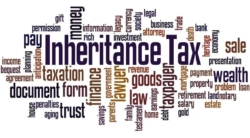Accounting Habits for Freelancers to Practice in the New Year

If you’re a freelancer or run your own small business, you probably have your own personal way of doing finances if you’ve been working for more than a short length of time. If you have an accounting system that you developed yourself, it likely contains a few inefficient or messy practices that can cause you difficulty when it’s time to file your tax reports. If that’s the case for you, you might want to consider giving your accounting habits a refresh in the new year. Replacing them with good habits and improved record-keeping is always a good idea. It will save you stress and time in the long and short term, but it can also allow you to grow your profits as you identify areas for improvement.
Getting Paid Properly
If you’re working as a freelancer, you almost certainly need to send an invoice to get paid. With modern internet tools, it’s easier than ever to create a free invoice online. You can print your invoice and hand it to your client, post it, or it’s more common nowadays to just email it. It’s even possible to send an email with code that lets you know when a customer opens and reads the invoice.
You should make it as easy as possible to be paid, and wherever possible you should take as much payment as you can at the beginning of every project, as some clients use a technique called power asymmetry to avoid paying freelancers or small businesses after a project is complete.
You should make all clients pay the invoice to a separate account for your business transactions, as well as charging any costs that you incur to that account too. This is so you don’t lose track of your progress, as well as giving you a quick and easy way to see if your operation is profitable and if you need to start looking for new leads.
Manage your Expenses
Cash flow is one of the most important things for a business. Besides making sure you’re paid on time, managing your expenses is a crucial way for you to improve your cash flow. To do this you need a database of your expenses. This is easily accessed if you use an accounting system, and if you don’t have any accounting database in place you should start one as soon as possible. Even recording all your transactions in excel is acceptable, but it might make some things harder. If you use an accounting system, you can run a general ledger report to easily calculate profit and loss totals. If you don’t have an accounting system, try to export your bank statements to a spreadsheet of some kind and doing some organization.
Once you have a list of all your expenses, you should do a quick audit. Scan through any regular transactions that you may not need any more and start cancelling any unnecessary subscriptions. After that you should make sure your expense list is cleared up and easy to read, so you can keep an organized record from now on.
Take a deep breath and dive into receipts
Receipt management can be a horrible task if you’re not on top of it already. You’re required by law to keep evidences of business purchases, which is done by keeping and recording receipts. This can be a nightmare if you don’t have an organized receipt system and can cause unprecedented stress when the tax year is up. It doesn’t matter how you store your receipts, but you should definitely have a system. There are apps that allow you to store receipts with photographs, as well as receipt management desktop tools too. However, most accounting tools cost money – if you are only running a small operation you can store your receipts in a folder (just make sure it’s backed up), as long as they are all labelled and easily organized. You can store your receipts physically, but they can fade over time and are a nightmare to organize without a sound filing system.
General habits
The running theme throughout these habits is that you need to stay organized above everything else. What’s a good way of doing that? Set aside 1 hour at the end of every week as some organization time. If you do this at the end of every week, you’ll find that you will be racing to complete your tasks. If you’re a systematic person, this can be a good thing as you’ll be motivated to get the job done sooner, but if you’re likely to cut corners you might want to set aside time at the start of the week instead. If you dedicate the time every week, you will feel incredible when your tax returns are due and you just have to convert your spreadsheet and send it off, instead of pulling out hairs trying to find that one specific receipt!






